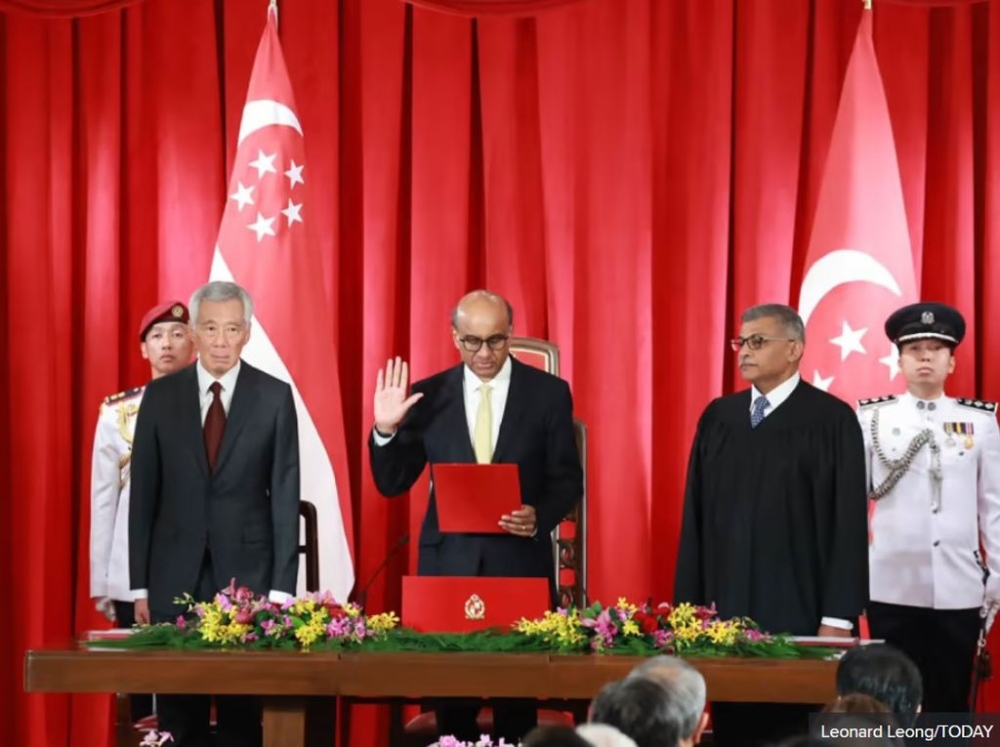SEPTEMBER 17 — Tharman Shanmugaratnam has been inaugurated as Singapore’s ninth president with a resounding 70 per cent of the vote. The former Deputy Prime Minister and Minister of Finance will soon move into the Istana, Singapore’s presidential palace.
But despite the grand lodgings and the title of head of state, the presidency in Singapore is largely ceremonial.
It’s a rather interesting turn of events. Tharman was once tipped to be Singapore’s next prime minister, succeeding long-time incumbent Lee Hsien Loong.
The prime minister in Singapore holds by far the most powerful position in government. With strong showings in general elections and a track record as a minister, Tharman was seen as a likely prime minister.
However, in 2016, Tharman categorically took himself out of the race to be prime minister, announcing “I am not the man for PM.”
Many attributed his decision to the ruling party’s unwillingness to field an ethnic minority/Indian origin candidate as PM.
With Tharman stepping aside, Lawrence Wong would eventually emerge as the prime minister-in-waiting.
Initially, it was speculated that Tharman, having announced his departure from frontline politics, would secure an appointment at a very senior level at one of the world’s major international organisations such as the IMF, World Bank or the UN.
Given his reputation as one of the most accomplished Singaporeans, it seemed he was set for a global future.
So, it’s interesting that he has now been appointed President — which is in a sense a hyperlocal position.
He is perhaps the most accomplished president in our history with a higher profile than past presidents.
Some would argue he is in fact over qualified for a largely ceremonial job but I think in this case, it’s a necessary step.
As Singapore’s ruling party looks to transition to another generation of leadership, it’s vital they show continuity and stability.
PM-in-waiting Lawrence Wong, at 50, is young and untested at the highest level. In general, the latest generation of the ruling PAP’s leadership is seen as somewhat inexperienced and weak.
The party had some difficulty selecting a leader from this cohort.
So, having a senior member remain within the picture is important. It’s possible that retiring PM Lee will also assume a Minister Mentor role, as his father did, remaining in the Cabinet with some degree of influence, ensuring stability.
These are necessary steps. Following a slew of recent scandals involving senior government ministers — the Speaker of Parliament resigned over an affair and the Transport Minister, was arrested following corruption allegations — the government is working to restore trust.
The Presidential election process, though extremely selective and involving only candidates with close connections to the PAP (People’s Action Party) or government service, seemed to galvanise the public.

Turnout was high, general interest in the election appeared considerable with plenty of commentary and analysis of the candidates.
The results stood as a ringing endorsement of government policy and continuity. Tharman, who was clearly the candidate most favoured by the ruling party, secured 70 per cent of the votes.
The well-spoken civil servant Ng Kok Song got 15 per cent and the more fringe and outspoken candidate Tan Kin Liang 13 per cent.
The final result is exactly what the government would have hoped for. Singaporeans enthusiastically endorsed the status quo.
And now, with an experienced figure installed as the head of state, we can expect a smooth transition when the more significant handover from PM Lee to Lawrence Wong takes place.
*This is the personal opinion of the columnist.






















